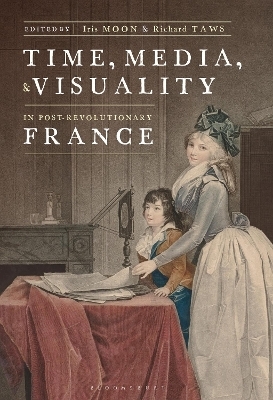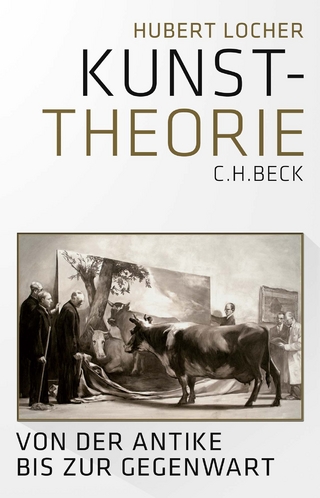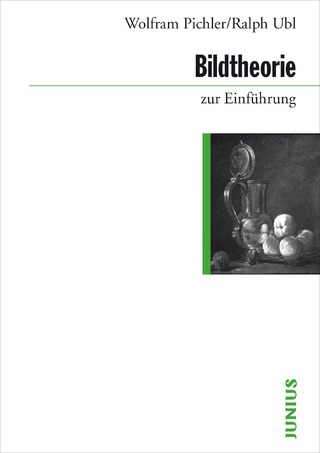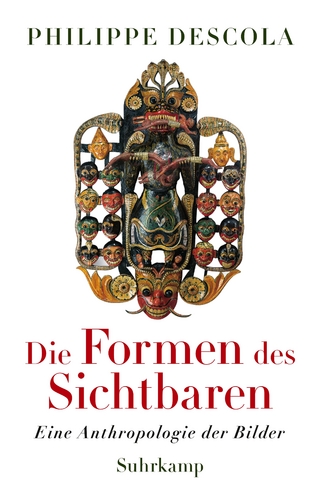
Time, Media, and Visuality in Post-Revolutionary France
Bloomsbury Visual Arts (Verlag)
978-1-350-24952-3 (ISBN)
Identifying the year 1789 – or the beginning of the French Republic – as the radical moment at which science and the arts came together through radical innovation, this volume questions the reigning teleologies of modern art. Uniting two key areas of 19th-century European art – the French Revolution and 19th-century technological and reproductive experimentation – this novel volume highlights the dual impact these developments had on the art of the period. In doing so, it opens up new and distinctive lines of inquiry around French visual culture, all the while mapping an expanded terrain of art objects, along with makers, consumers and situations of art.
Considering a remarkably broad range of media and practices through an interdisciplinary lens, this diverse collection of essays brings together both eminent and emerging scholars in 18th- and 19th-century French visual culture and enriches our understanding of the period. The essays provide thought-provoking insights on the temporal dimension of art, challenging oversimplified views of artistic progress in modernity. They question teleological narratives, emphasizing the complexity of influences shaping the modern artist. As such, the book offers a new account of the story of French art’s modernity by exploring the work of genre painters and miniaturists, sign-painters and animal artists, landscapists, architects, and restorers, as they worked out what it meant to be “post-revolutionary.” As a result, the book promises appeal to academic audiences both within and beyond the discipline of art history.
Iris Moon is Assistant Curator in the Department of European Sculpture and Decorative Arts at the Metropolitan Museum of Art, New York, USA. She is author of The Architecture of Percier and Fontaine and the Struggle for Sovereignty in Revolutionary France (2016). Richard Taws is Reader in the History of Art at University College London. He is author of The Politics of the Provisional: Art and Ephemera in Revolutionary France (2013), and co-editor, with Genevieve Warwick, of Art and Technology in Early Modern Europe (2016). With a collective of scholars in various disciplines, he co-authored Interacting with Print: Elements of Reading in the Era of Print Saturation, 1700-1900 (2018).
List of Plates
List of Figures
Notes on Contributors
Acknowledgments
Introduction, Iris Moon (MET Museum of Art, USA) and Richard Taws (UCL, UK)
1 Miniature Style, 1789-1815, Jann Matlock (UCL, UK)
2 Rupture, Interrupted: Rococo Recursions and Political Futures in Percier and Fontaine’s Napoleon Fan, Iris Moon (MET Museum of Art, USA)
3 A Draughtsman’s Contract: Court and Country in the work of Louis Lafitte, Stephen Bann (University of Bristol, UK)
4 Jean-Baptiste Huet’s Lions and the Look of the Captive in Post-Revolutionary France, Katie Hornstein (Dartmouth University, USA)
5 First as Farce, then as Tragedy: Art, Vaudeville and Modern Painting after the French Revolution, Steven Adams (University of Hertfordshire, UK)
6 Monsieur Crouton, The Shop Sign Painter: The Unexceptional Artist in Early Nineteenth-Century Satirical Print, Kathryn Desplanque (University of North Carolina at Chapel Hill, USA)
7 Medium as Museum: Marie-Victoire Jacquotot’s Porcelain Painting and Post-Revolutionary Fantasies of Preservation, Daniel Harkett (Colby College, USA)
8 The Cultural Politics of Fashion and the French Revolution of 1830, Susan L. Siegfried (University of Michigan, USA)
9 A Storm is Coming: Georges Michel in the Wind, Richard Taws (UCL, UK)
Index
| Erscheinungsdatum | 07.09.2024 |
|---|---|
| Zusatzinfo | 32 color & 61 bw illus |
| Verlagsort | London |
| Sprache | englisch |
| Maße | 156 x 234 mm |
| Themenwelt | Kunst / Musik / Theater ► Allgemeines / Lexika |
| Kunst / Musik / Theater ► Kunstgeschichte / Kunststile | |
| ISBN-10 | 1-350-24952-1 / 1350249521 |
| ISBN-13 | 978-1-350-24952-3 / 9781350249523 |
| Zustand | Neuware |
| Informationen gemäß Produktsicherheitsverordnung (GPSR) | |
| Haben Sie eine Frage zum Produkt? |
aus dem Bereich


